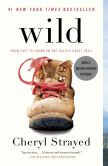
The last two books I've read, The Longest Way Home and Wild, have been what I call travel memoirs. This got me thinking about what makes a good travel memoir. Or put another way, what should one expect from this genre? For me a "travel memoir" should provide a sense of the place traveled to and if the destination or mode of travel is unusual, also a sense of how to travel or what it takes to make the kind of trip the author took. Notwithstanding the above, a better name for this genre might be travel related memoirs, because the travel often takes a backseat to the memoir part of the equation. It is the entry point into the memoir. Memoir implies something personal and so in a travel memoir I also expect something personal to the author - why the author made the trip, how the journey changed him or her, or what made his or her journal unique. Without the personal it would just be a guidebook, and without a sense of the destination and the literal and figurative journey to get there, it would just be a memoir, and probably not a very good one.
With this idea of what a travel memoir should be, I am not sure how to characterize Wild, Cheryl Strayed’s memoir about her experience hiking the Pacific Crest Trail (PCT). It felt like two stories in one – a travel narrative and a memoir – that didn’t quite sync up with one another. With regards to the travel portion of the story, I didn't get much of a sense of the PCT or what it takes to hike the PCT. This is partly because, and I don't Strayed would disagree with this, she didn't exactly know what she was doing when she set out. Her first day on the trail begins with her packing and trying on the pack she would carry for the next few months for the first time. Admittedly I do not know much about hiking and the only backpacking I've done was backpacking across Europe a few times, but even I knew to test out a full pack before starting my trip (to make sure I could handle the weight). Her pack is ridiculously overweight, a fact that does not go unnoticed by the many people she encounters on the trail. She brings the wrong fuel for her camp stove and an ice ax that she doesn't know how to use. At one point a fellow hiker on the trail calls her the hapless hiker, a most suitable nickname. The fact that she survived this trip without serious injury is remarkable in itself (that is if you don’t include her poor her feet which were squeezed into boots that were too small for a significant part of her trip).
The travel story was also problematic because for me at least, I never got a sense of what it felt like to hike the PCT. The trail itself just didn’t come through. I know now that there are deserts and mountains, that the trail is sometimes hot and cold, but the full picture never materialized. Obviously, this is a very personal response. In contrast, when Strayed describes being at her dying mother’s side I felt like I was in the room with them.
What I did get a sense of was Strayed herself. Hapless hiker she may have been, but she was also incredibly brave and determined. This was clear even when Strayed was in her self-destruct mode. This is period before the hike, when Strayed was mourning her beloved mother who died of cancer. After her mother's death Strayed fell apart and she went into self-destruct mode which manifested in doing things like cheating on her husband and shooting heroin. Hiking the PCT was her reset button. Getting away from everything and everybody seems to have been what she needed to start her life over from a healthier place.
Notwithstanding the personal story about her mother and her family, something was missing in Wild. The story begins with Strayed in this emotionally bad place (in mourning, recently divorced, doing heroin) and ends with her at the Bridge of the Gods ready to pursue her dream of being a writer, no longer needing heroin, and generally with a new lease of life, but there wasn’t a clear sense of how Strayed went from point A to point Z, of her change process. In contrast in McCarthy’s memoir his thought process plays out against the canvas of his travels. In Strayed’s case she starts out one way and at the end of the hike, she’s different. She bounces between the past before the trail and her present on the trail, but the thread connecting them is tenuous as most of her reflections about her life choices seem to have come after the hike, not during the hike. She’s a different person, a healthier person at the end of her adventure, but it is not clear how she became that person. In fact at times it seemed like the hike was something that happened in the middle of her life, like a commercial break during a television show that had little to do with what happened before or after the hike. Conqequently Wild seemed like two unconnected stories, neither of which was wholly satisfying.
No comments:
Post a Comment
I look forward to your comments. Tell me about the books you're reading.